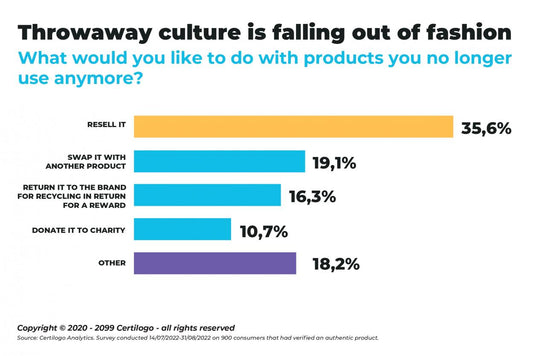What is a circular fashion product?
No product authentication. No sustainability.
How can brands be active in the second hand market for their products?
Why is Fast Fashion unsustainable?
Authentication as a necessity for sustainable strategies
Why brands must invest in sustainability strategies
How fashion brands can cope with current global changes
Sustainable fashion and connected products: the pairing that consumers desire
Traceability and brand transparency are the drivers of sustainable fashion
European Fashion Alliance for a more sustainable industry




























